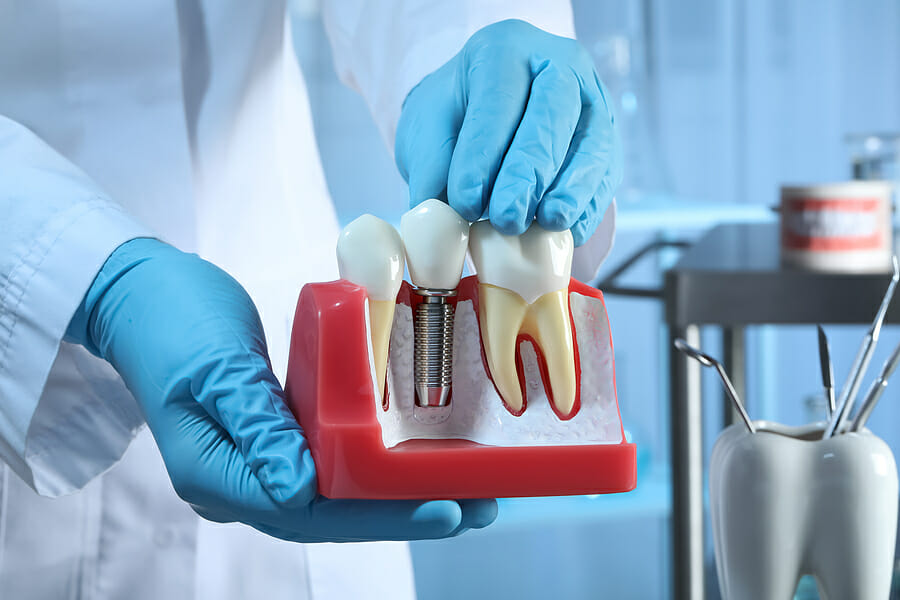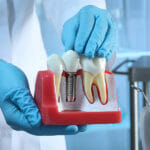Dental implants are undoubtedly one of the best long-term tooth replacement options – which is why they are so popular nowadays. But just because they’re popular it does not mean that there are no risks involved.
If you’re thinking about getting dental implants, it is a good idea to be aware of some of the more common complications that may take place:
- Infection
The most common complication of dental implants is infection of the site where the implant is placed. It normally happens shortly after the surgery and the severity of the infection can vary.
In most cases as long as you act quickly and contact your oral surgeon the risk of it affecting your implant should be minimal.
- Micro-movement
Sometimes you may notice that the implant shifts slightly and seems to lack stability shortly after the surgery. What this means is it hasn’t fully integrated with your jaw bone and you should contact your oral surgeon before it becomes any looser.
- Bleeding
While some bleeding may take place shortly after the surgery – chronic bleeding can be a sign of a larger issue. Typically it shouldn’t have any long-term impact on the implant as long as you act fast and ensure that your oral surgeon is able to stop it.
- Loose implant
If your implant actually becomes loose it could be because it hasn’t fused with the jawbone properly and lacks support. However there may be other issues at play too, which is why you’ll need to contact your oral surgeon and have them look into the problem.
Assuming the implant has failed to integrate with the bone properly, your surgeon is likely to remove it and investigate the cause of the issue. It may be possible to attempt to implant the same site again once it has healed.
- Gum recession
While not all that common, in some cases the gums surrounding your implant may start to recede – even months after the surgery. Normally that is a sign of gum infection, and you should arrange an appointment with your dentist so that it doesn’t worsen and affect the implant.
- Nerve damage
If you feel numbness, tingling, or pain in your tongue, gums, face and lips – it may be a sign that the dental implant was placed too close to the nerve and has damaged it. Some nerve damage may be temporary, but it is best to be on the safe side and contact your surgeon.
The last thing you want is for there to be permanent nerve damage – and if there is any risk of that then removing the implant early may help to avoid it.

- Sinus protrusion
Dental implants in the upper jaw could potentially protrude into the sinus cavity – inflaming your sinuses. Typically you will feel some pain accompanied by other symptoms such as sinus headaches, blocked nose, mucus, reduced sense of smell, and so on.
Keep in mind that while these are the most common complications that may take place due to dental implant surgery – the risk of each one is actually quite low. Many dental implants are carried out without any complications whatsoever, and you can talk to your oral surgeon or dental implants Belfast specialist to find out more about the risks involved.
As you’ve probably noticed, in most cases as long as you identify the symptoms early and act quickly – you should be able to stop things from getting worse. That is the main reason why it helps to be aware of the potential complications that may take place, and ensure that you react immediately if you suspect any one of them.
Image Source: BigStockPhoto.com (Licensed)
Related Categories: Beauty, Reviews








